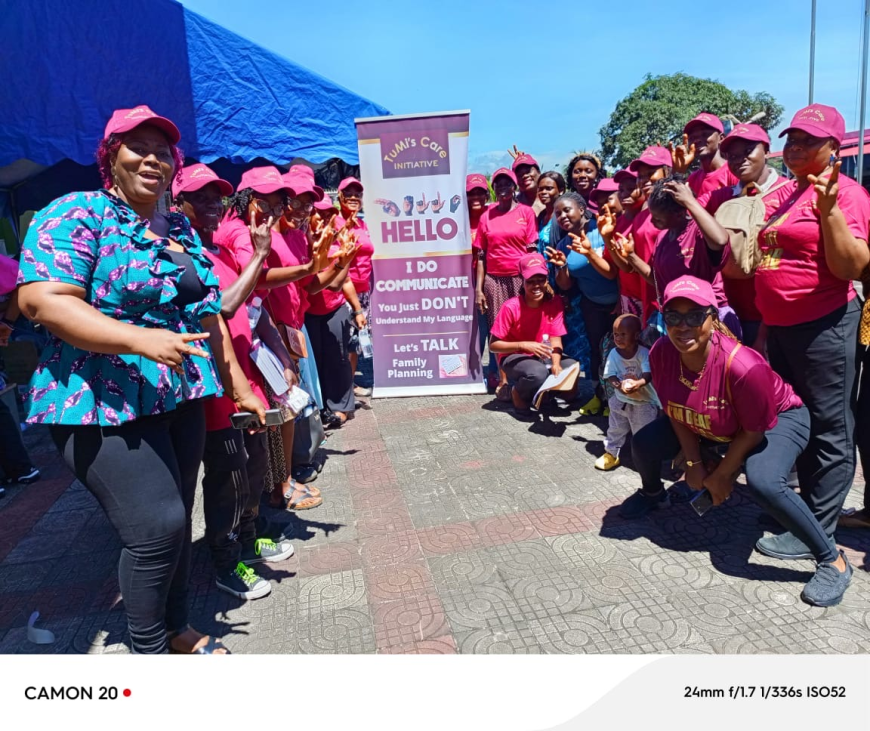TUMMI'S Care Initiative Calls for Inclusive Decision-Making in Liberia, Urges Government to Prioritize People with Disabilities

The TUMMI'S Care Initiative has called on the Liberian government to adopt a more inclusive approach in its decision-making processes, urging that no citizen should be excluded based on their health status, particularly those living with disabilities. The organization, which is actively involved in ensuring that adolescents and marginalized groups are equally represented across sectors such as health, gender, and education, is now focusing its attention on the plight of people with disabilities.
Executive Director of TUMMI'S Care Initiative, Minnie Bowier, recently addressed the issue during a public statement, raising awareness about the glaring exclusion of people with disabilities, especially those who are speech-impaired. She stressed that while progress has been made in certain areas, individuals with speech impairments remain severely marginalized and are often left out of critical national programs, including healthcare.
"We cannot talk about a healthy and inclusive society if we continuously ignore the needs of those who struggle to have their voices heard, literally and figuratively," Bowier stated. "Speech-impaired individuals, among other disabled groups, are left behind in Liberia’s health sector, and their absence from the decision-making table is alarming."
Bowier highlighted that people with speech impairments are not adequately included in Liberia’s universal health coverage plans. "These individuals face immense challenges when seeking medical care," she noted. "They cannot effectively communicate their symptoms or concerns, which often leads to misdiagnoses or inadequate treatment. Despite this, they remain largely invisible in government health policies."
According to Bowier, the lack of data on speech-impaired individuals in Liberia is a clear indication of their exclusion. "Statistics and data collection often overlook people with disabilities, particularly those with speech impairments. If they are not counted, how can they be accounted for in national health policies?" she asked.
Bowier also shed light on the struggles faced by pregnant women who are deaf or have speech impairments. "These women encounter double the barriers – not only are they excluded due to their disability, but their condition as pregnant women adds an extra layer of vulnerability. They often find it incredibly difficult to communicate with healthcare providers during prenatal and postnatal care, putting their health and the health of their unborn children at risk."
For women who are both deaf and pregnant, the challenges extend beyond the doctor’s office. Many report feeling isolated and unsupported during their pregnancies, as there are few, if any, accessible resources for them. This lack of support can lead to complications during pregnancy, increased stress, and mental health struggles, which are often left unaddressed.
The exclusion of speech-impaired individuals is not limited to the health sector. In society at large, they face significant barriers to education, employment, and social participation. The stigma attached to their condition often leads to discrimination, both subtle and overt, making it difficult for them to thrive. Many children with speech impairments are denied access to quality education because schools lack the resources or willingness to accommodate their needs. As a result, these children grow up with fewer opportunities and are more likely to live in poverty.
Employment opportunities for people with disabilities, particularly those with speech impairments, are scarce. The lack of inclusive policies in workplaces and the absence of support systems such as interpreters or specialized communication tools mean that many are left unemployed or underemployed. This creates a cycle of poverty and dependence, further isolating them from the rest of society.
In her address, Bowier made a passionate appeal to the Liberian government to make inclusivity a priority. She emphasized that every citizen, regardless of their physical or mental abilities, deserves to be heard and considered in the country’s decision-making processes.
"We are calling on the government to actively involve people with disabilities in policy discussions, especially those related to health and education. It is not enough to talk about inclusion – we must practice it," Bowier urged. "This includes collecting accurate data on the needs of disabled individuals, particular.
What's Your Reaction?








































































